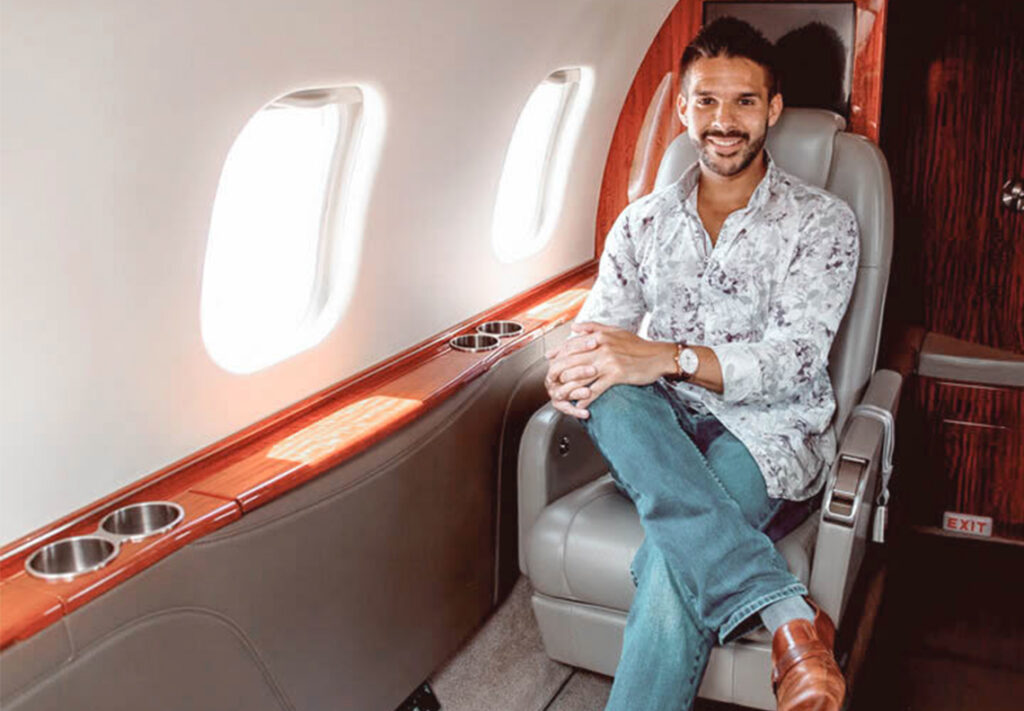Tell us a little about BitLux
Well, we’ve been in operation just two years and we’re growing quickly having doubled our projected annual turnover in the last two months alone.
Our customer base is mainly people flying for business. The biggest indication of this is that during November, December and January we had our slowest months. While everyone else was looking to get somewhere for the holidays, business travellers wanted to stay home.
We also accept Cryptocurrency, which is pretty unique. A lot of companies claim to take this type of payment, but few do it properly. We’ve created a platform that can process $5m a month or $1m a day per transaction in a way that’s fully approved and trackable at our end.
How did COVID-19 impact your business from the beginning?
We have a large Chinese client base and I have a big personal and professional network out there, so we heard about the crisis back in December. For Americans it was only once they understood they were going into lockdown and everything which that brings, that people started to think about where they wanted to hunker down.
We began doing a lot of flights out of major metropolitan areas, to the Midwest for example, and I was advising people not to go to an island or anywhere that was totally dependant on imports.
At the same time, we were doing a lot of repatriation flights from the Bahamas and the Caribbean, bringing home holidaymakers and employees of companies out there.
And how did the opportunity to help with aid come about?
The Chinese government put out a calling card to its foreign-based citizens to come home, saying that things were under control. That led to a lot of enquiries about what planes could fly there, and at the same time we could see a dire needs for PPE, especially masks.
I started going through my Chinese contacts and with a friend we worked out how we could help plug the PPE gap using the same standards we apply to our everyday business; being ethical, being thorough and being detailed.
We’ve been able to source and work on orders for literally millions of pieces of PPE – we even have people in China physically visiting factories to ensure quality – then we’ve been taking care of the logistics to bring it all back.
Alongside that we’ve been working on repatriation flights to China. We’ve been sending G5s, G550s, Globals – we even had a 737 filled with a class of 16-year-old schoolkids, getting them back home. A lot of these flights have been back-to-back.
And they can be tricky flights to organise too
Really tricky! There’s so much red tape it’s unreal. You’ve got to work with Centers for Disease Control and Prevention (CDC) and Customs in the US, and the Civil Aviation Administration of China (CAAC) and Customs out there. And every piece of paper must line up with one particular tail number and one particular crew. There’s no room for error.
That’s where the Avinode TripManager has been invaluable.
We’re glad to hear that. In what way in particular?
Those trips are some of the most detailed I’ve ever done in my career. Everything must be 100% accurate. If there’s a mistake that plane will get turned around mid-air. For that reason, if it wasn’t for TripManager, I think we would have experienced a large financial loss.
We chose Avinode not just for the exposure that comes with being on the marketplace, but also for the logistics. It’s great having all your data in one place and aggregated in such a way that multiple parties can access it. Everything is laid out simply in a way that no other company can provide in a plug-and-play application.
This is not the first time you’ve been involved in humanitarian aid, is it?
No, unfortunately we have a lot of experience in helping with disaster relief, evacuations and humanitarian trips. For example, we helped when the hurricanes hit Puerto Rico and the island was devastated.
An entire MD-87 was filled with aid. The plane had 155 seats and there were boxes on every one of them and in the overhead lockers. Then we took people in need of medical care back to the US to be looked after. It was a big task but we’re proud of the work we did.
What are your thoughts on where the industry goes from here?
Throughout this crisis I’d say at least 1 in 5 businesses I’ve worked with have taken a real hit, whether laying off or furloughing staff or even ceasing operations. In the US, the government’s paycheck protection programme has started to kick in and that should help operators get things back to normal pace without having to rely entirely on demand.
As for travellers, I think people are finally getting the data needed to make their own decisions. In the past week and a half, we’ve seen an upswing in domestic requests from people just wanting to go from A-to-B.
Undoubtedly some will never get over this and maybe will forever fly privately because they don’t want to go near a crowded airport or airline. In many of the recent repatriation flights from the US to China we’ve seen groups of people come together to travel. There’s a real sense of family and patriotism, where people are saying, “Ok, we’re all in this, here’s what we need to do together.”
I see that in my neighbourhood, and I see that going on in the aviation industry. Humanity always comes together in times of need.


